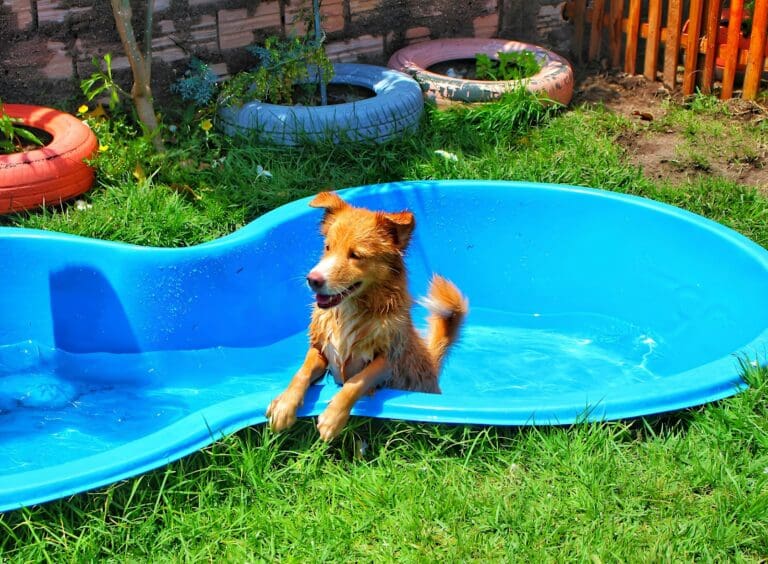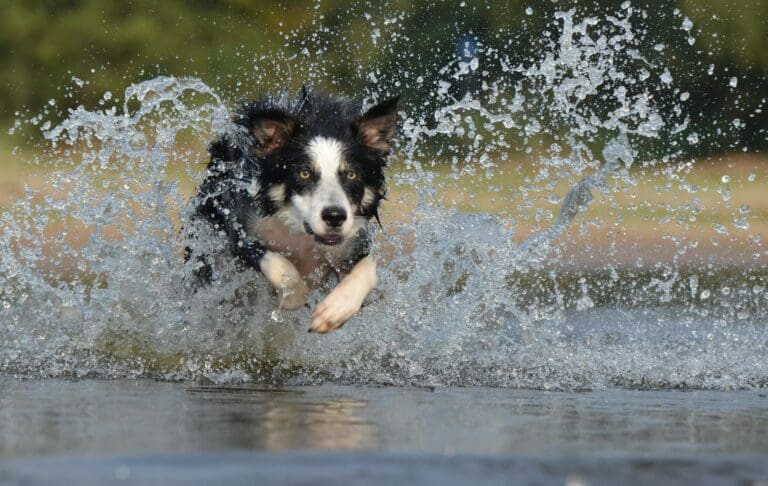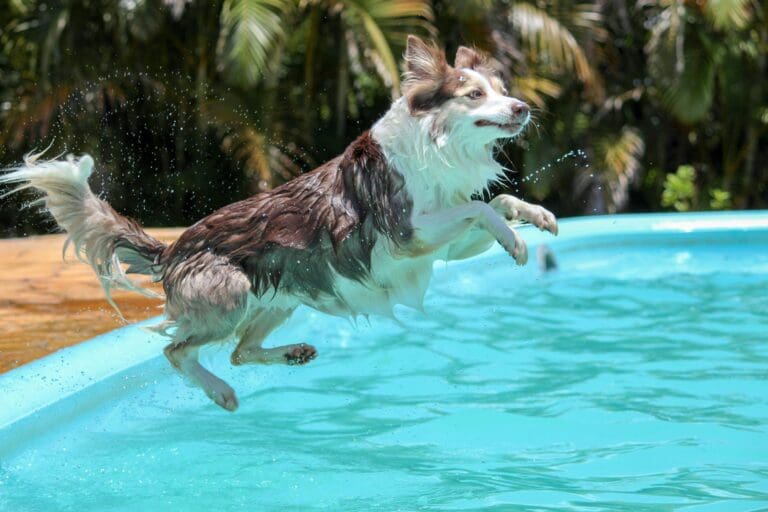Our dogs can’t tell us when something’s wrong, but they often show signs through their behavior when they’re not feeling their best. As responsible pet owners, it’s crucial to recognize these warning signs and seek veterinary care promptly. In this article, we’ll explore 14 strange dog behaviors that may indicate a trip to the vet is in order.
1. Changes in Appetite
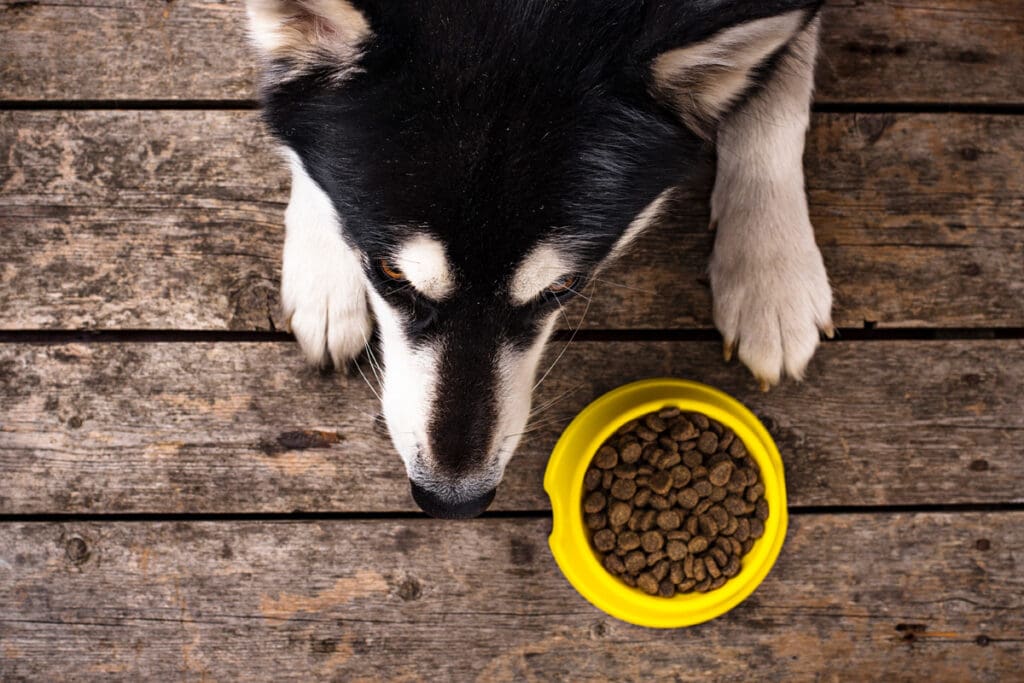
A sudden change in your dog’s appetite, whether a significant increase or decrease in food consumption, can signal an underlying issue. This might result from dental problems, gastrointestinal disorders, or more severe conditions like kidney disease or cancer. If your dog’s eating habits change for more than a day or two, consult your vet.
2. Frequent Vomiting or Diarrhea

Occasional upset stomachs happen, but frequent or persistent vomiting and diarrhea can be signs of underlying health problems like infections, food allergies, or gastrointestinal diseases. If your dog’s tummy troubles don’t improve within a day, especially if they’re lethargic or show other symptoms, it’s time to see the vet.
3. Lethargy or Unusual Fatigue

If your typically energetic dog suddenly becomes lethargic or unwilling to engage in their usual activities, it’s a cause for concern. Lethargy can result from numerous issues, such as infections, pain, heart problems, or anemia. A vet visit is essential to determine the underlying cause.
4. Changes in Thirst and Urination

Excessive thirst or changes in urination habits can indicate kidney disease, diabetes, urinary tract infections, or other issues. If your dog starts drinking significantly more or less water than usual or has trouble urinating, consult your vet.
5. Respiratory Issues
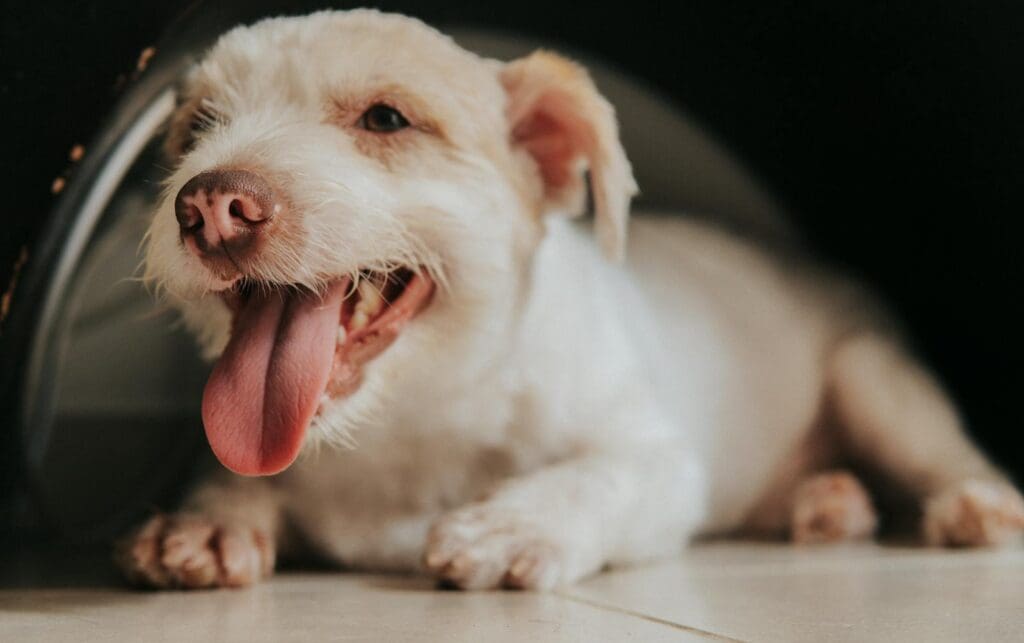
Coughing, sneezing, wheezing, or difficulty breathing can point to respiratory infections, allergies, heart disease, or even cancer. Don’t ignore these signs, especially if they persist or worsen over time.
6. Behavioral Changes
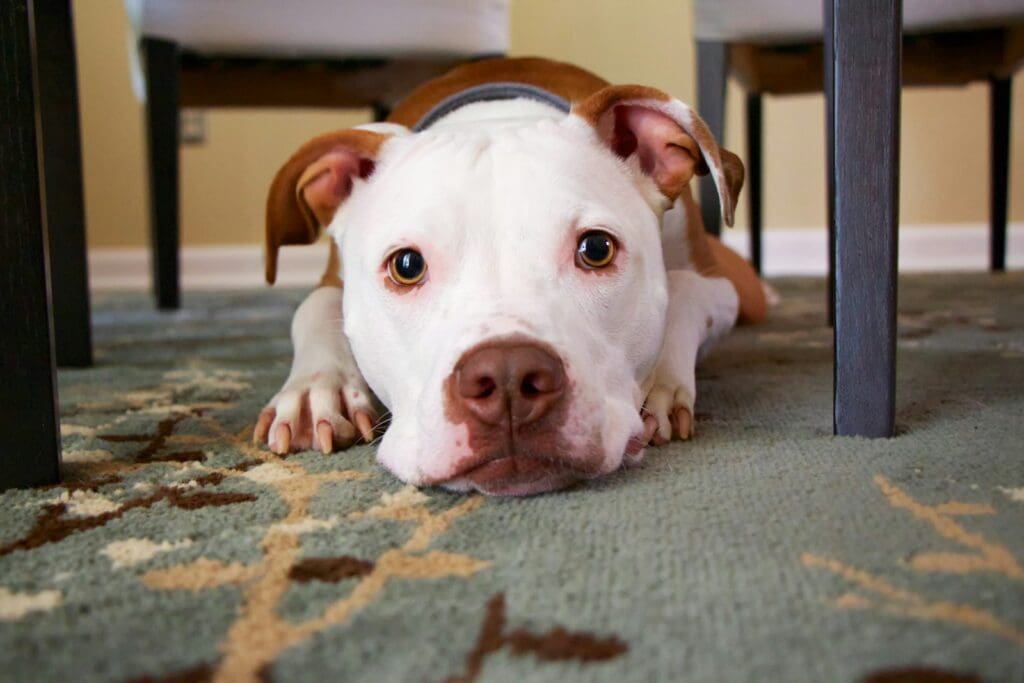
Dogs may exhibit behavioral changes when in pain or distress. It could signal discomfort or illness if your dog becomes unusually aggressive, anxious, or withdrawn. Rule out underlying medical issues with your vet before addressing behavioral problems.
7. Skin and Coat Problems

Persistent itching, hair loss, or skin lesions can be symptoms of allergies, skin infections, or underlying diseases like hypothyroidism. Your vet can help diagnose the issue and provide appropriate treatment.
8. Weight Loss or Gain
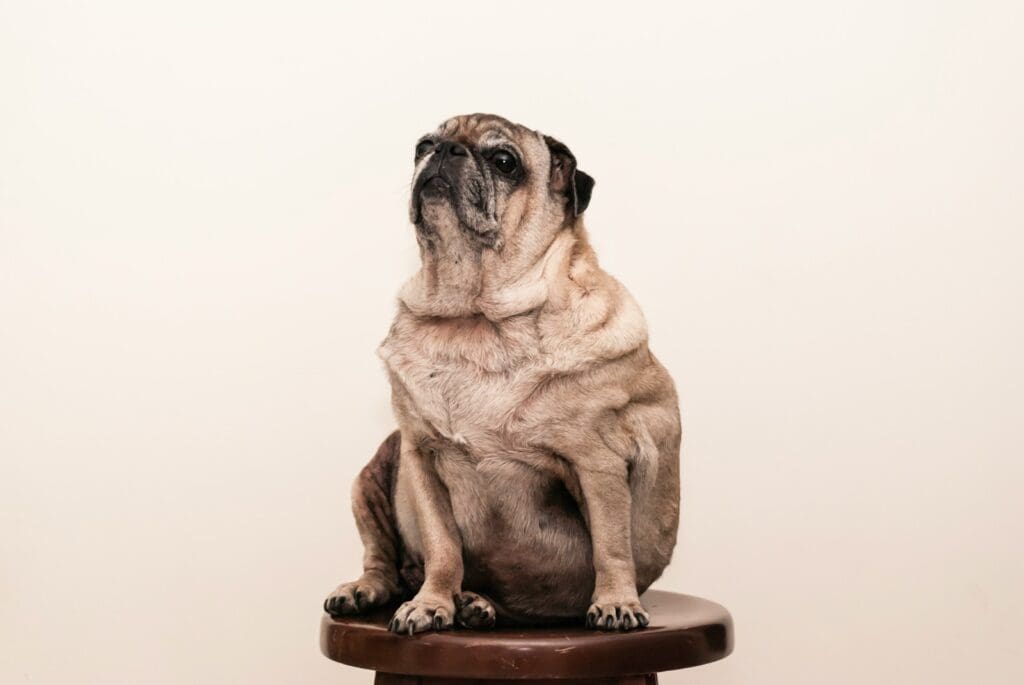
Significant changes in your dog’s weight without a change in diet or exercise could be due to metabolic disorders, parasites, or cancer. Monitoring your dog’s weight and addressing unexplained fluctuations promptly is essential.
9. Eye and Ear Issues
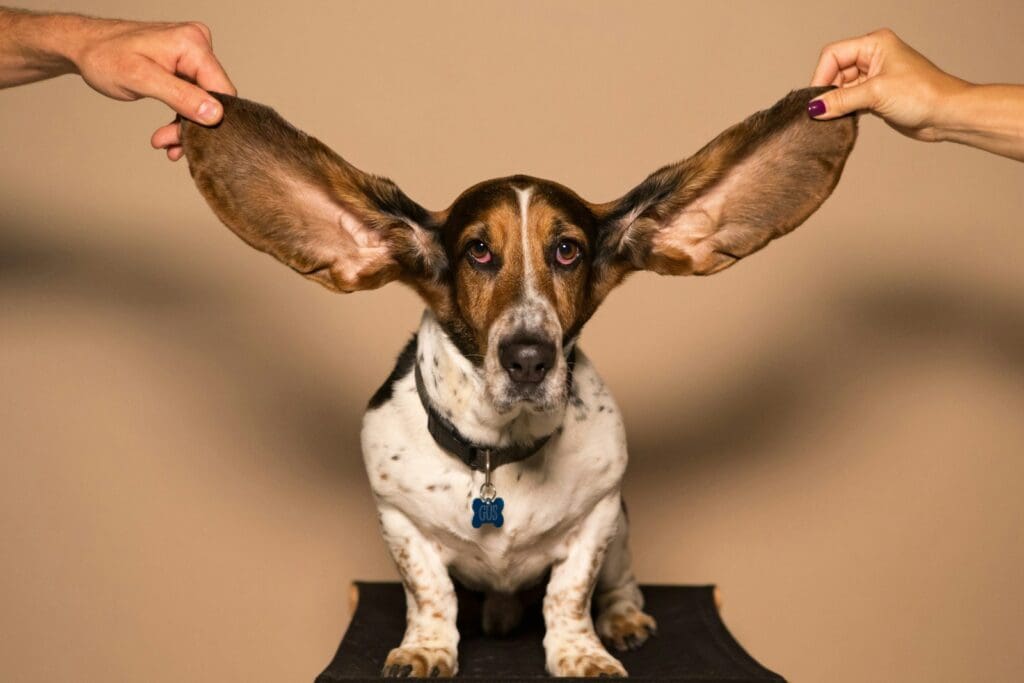
Redness, discharge, squinting, or persistent scratching at the eyes or ears may indicate infections or other problems. Eye and ear issues can escalate quickly, so prompt veterinary care is crucial.
10. Changes in Bowel Habits

Blood in the stool, straining to defecate, or persistent diarrhea can signal gastrointestinal issues, parasites, or more severe conditions like colitis or cancer. If your dog’s bowel habits change and it persists, consult your vet.
11. Pacing, Circling, or Other Compulsive Behavior

Pacing and circling are behaviors that healthy dogs demonstrate through excitement, in preparation to lie down, or to indicate they need to relieve themselves.
However, excess circling or pacing without an obvious reason can be a signal of a bigger problem. For example, dogs who pace in one direction, or wander aimlessly, may be disoriented, confused, or have a neurological problem. Compulsive behaviors can also be the result of anxiety or stress.
12. Aggression
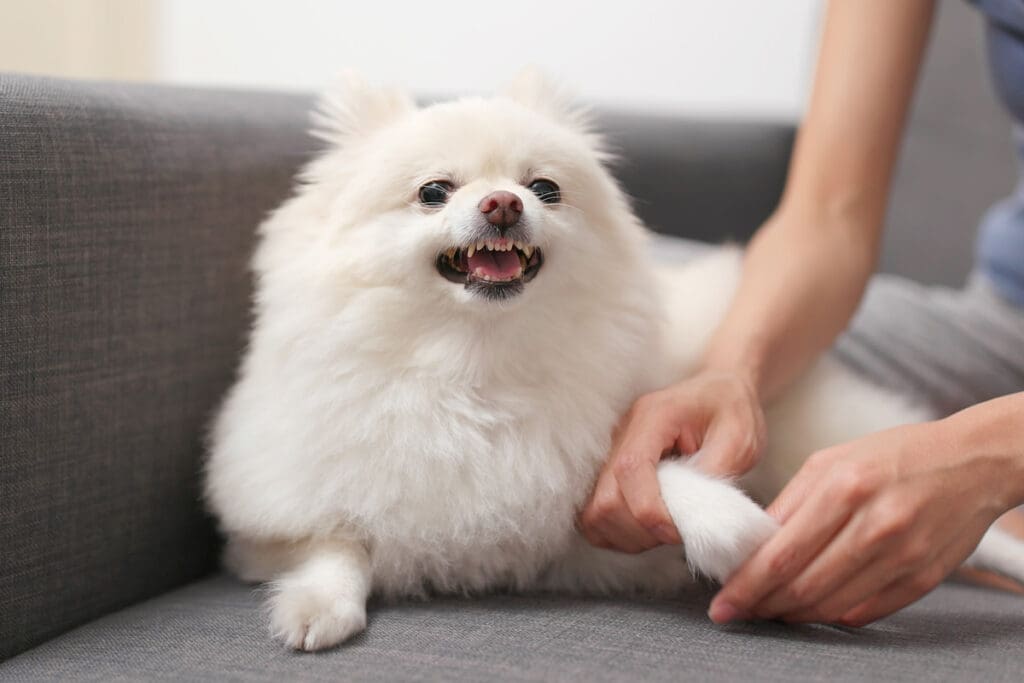
Watch out for sudden, aggressive demeanor changes — growling, snapping, suddenly not wanting to be touched, or panicking when you touch them. A visit to the vet is indicated to rule out any underlying issues.
13. Withdrawal or Isolation

If your dog suddenly doesn’t want to be around you or other people — or is isolating itself in an out-of-the-way place – this could be a sign of an underlying problem. Dogs sometimes isolate themselves when they are ill or suffering from pain. If this behavior lasts more than 24 hours, take your dog to the vet.
14. Head Pressing
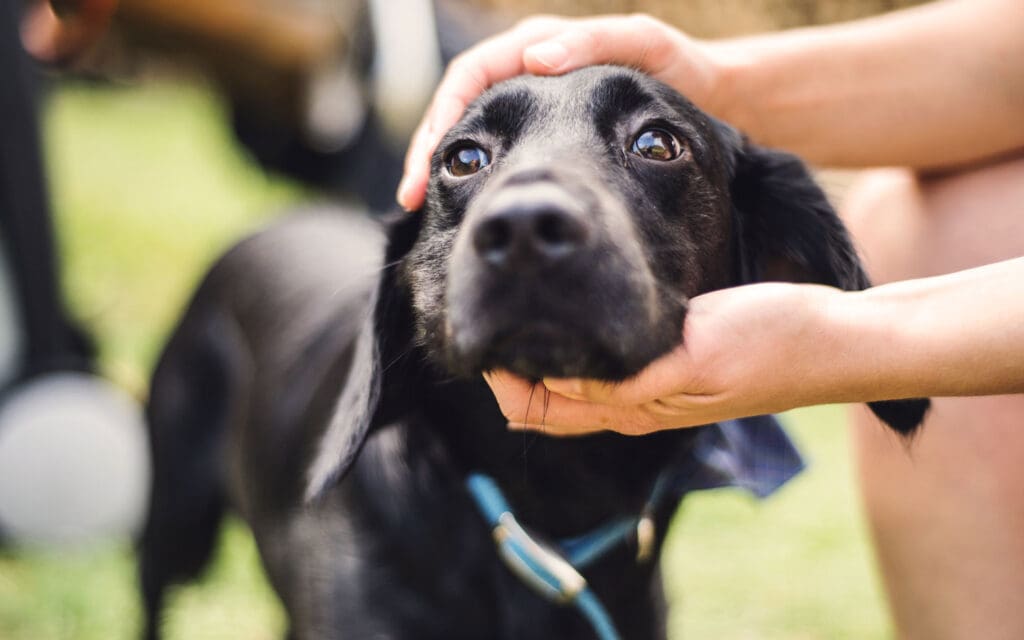
A strange behavior known as “head pressing” is when a dog stands with its head hung low and pushes it against the wall, into a corner, or against some other stationary object.
This unusual behavior may be indicative of a severe health issue and requires the immediate attention of a veterinarian. Common causes are central nervous system issues, trauma, or poisoning.
Head pressing may accompany other symptoms such as diarrhea, vomiting, seizures, pacing, or visual disturbances.
Final Thoughts
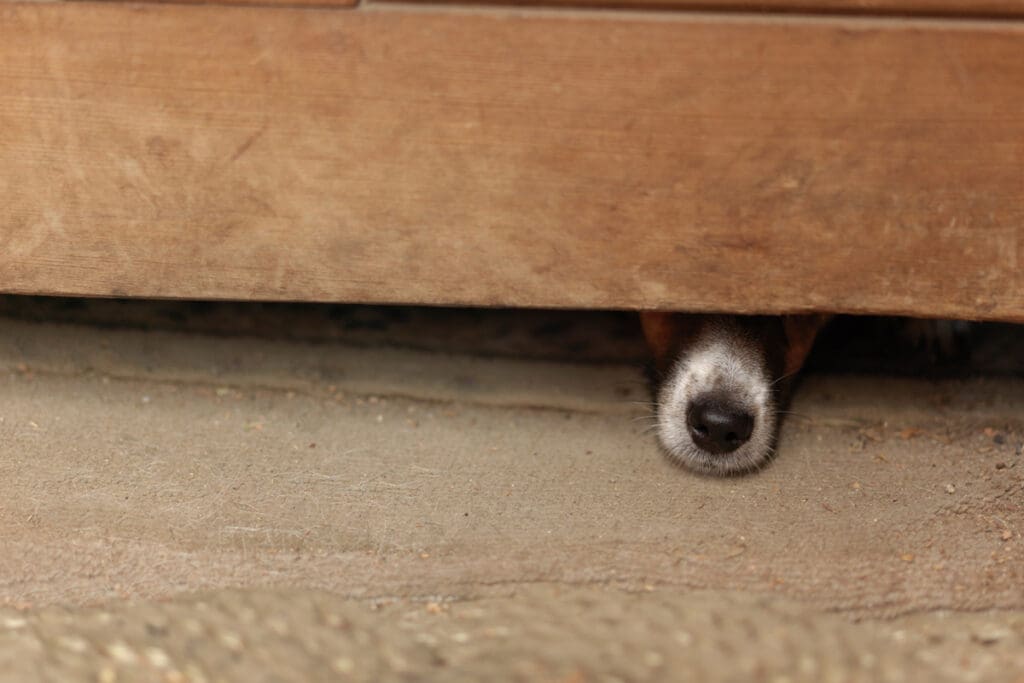
Being attuned to your dog’s behavior is essential for their well-being. If you notice any of these strange dog behaviors, don’t hesitate to contact your veterinarian. Early detection and treatment can often make a significant difference in your dog’s health and quality of life. Always consult with a professional to determine the cause of any behavioral changes or physical symptoms in your beloved canine companion.



